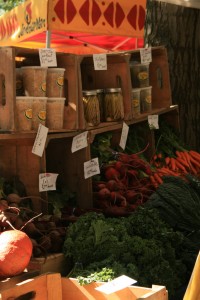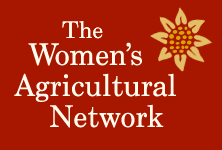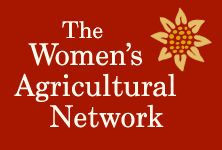If you’re like me, you’ve probably wondered what’s the difference between a person who tries to eat more sustainably, and someone who doesn’t? I’m curious about it because I’d like to know the most effective ways to provide education that leads to behavior change. Of course, it can also matter if you’re marketing food products. Although it seems like something that should be easy to figure out, it’s not that simple!
Before really being able to address the question, one has to come up with some definition of sustainable food consumption. There are many concepts that often get thrown into the mix. A recent report from the United Kingdom provides eight principles of a healthy and sustainable diet. They are:
- Eat a varied balanced diet to maintain a healthy body weight.
- Eat more plant based foods, including at least five portions of fruit and vegetables per day.
- Value your food. Ask about where it comes from and how it is produced. Don’t waste it.
- Moderate your meat consumption, and enjoy more peas, beans, nuts and other sources of protein.
- Choose fish sourced from sustainable stocks. Seasonality and capture methods are important here too.
- Include milk and dairy products in your diet or seek out plant based alternatives, including those that are fortified with additional vitamins and minerals.
- Drink tap water.
- Eat fewer foods high in fat, sugar and salt.
Some of these recommendations, specifically those focused most on health, show up in the Dietary Guidelines for Americans. Others are more unique to the U.K. The third one is definitely my favorite! I like it because it’s a reminder to think about one’s own values, and how they might pertain to food choices, without dictating something specific. The underlying goal is for people to find foods that are produced in ethically and environmentally sound ways. Confusing food labels can certainly make this difficult, but the sentiment is still useful.
So back to the question of who eats sustainably! A survey of over 1,500 Dutch consumers identified a relationship between “most of the basic human values” and their food choice motives (de Boer, J. et al., 2007). For example, people who placed value on “universalism” were more likely to favor eating less meat or eating free-range meat. Similarly, research on organic food buyers has shown that they are more likely to focus on prevention, i.e., they have an interest in avoiding negative outcomes. (de Boer, J. et al., 2007)
Although much of our food choice is driven by issues that are not necessarily tied to sustainability, such as habit and taste preference, food pricing and policy, availability and accessibility, and quality and freshness, efforts can be made to link sustainable foods to these factors. In doing so, we may gain some headway in building a bigger base of consumers who are interested in sustainable food consumption.
Reference:
de Boer, J., C.T. Hoogland, J. Boersema. 2007. Towards more sustainable food choices: Value priorities and motivational orientations. Food Quality and Preference 18: 985-996.








